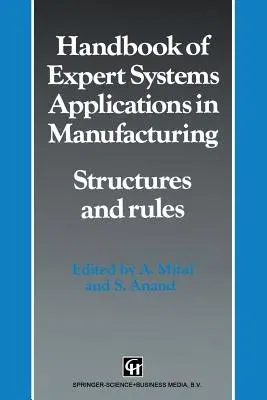A Mital
(Author)Handbook of Expert Systems Applications in Manufacturing Structures and Rules (Softcover Reprint of the Original 1st 1994)Paperback - Softcover Reprint of the Original 1st 1994, 2 November 2012

Qty
1
Turbo
Ships in 2 - 3 days
In Stock
Free Delivery
Cash on Delivery
15 Days
Free Returns
Secure Checkout
Part of Series
Intelligent Manufactoring
Part of Series
Intelligent Manufactoring Series (Closed)
Print Length
397 pages
Language
English
Publisher
Springer
Date Published
2 Nov 2012
ISBN-10
9401043027
ISBN-13
9789401043021
Description
Product Details
Book Edition:
Softcover Reprint of the Original 1st 1994
Book Format:
Paperback
Country of Origin:
NL
Date Published:
2 November 2012
Dimensions:
23.39 x
15.6 x
2.16 cm
ISBN-10:
9401043027
ISBN-13:
9789401043021
Language:
English
Location:
Dordrecht
Pages:
397
Publisher:
Weight:
580.6 gm

